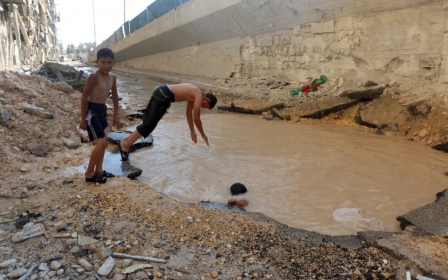Assad sworn in for 7-year term as President

Syria's President Bashar al-Assad was defiant as he was sworn in for a seven-year term on Wednesday.
In a speech delivered after he took the oath of office at a red carpet ceremony in Damascus, Assad dismissed the 2011 Arab Spring uprisings as a "fake spring" and denounced the governments who backed the Syrian opposition.
"Soon we will see the Arab, regional and Western states that supported terrorism pay a high price. We are people who become more defiant under pressure and who face attempts to humiliate us with more pride, dignity and self-confidence."
Assad won a Presidential election in June denounced as a "farce" by many commentators.
"Syrians, three years and four months... have passed since some cried 'freedom'," Assad declared, referring to the 2011 revolt.
"They wanted a revolution, but you have been the real revolutionaries. I congratulate you for your revolution and for your victory," Assad told his supporters.
He declared that he had been proven correct about his opponents due to the rise of extreme Islamist groups like Jabhat Al-Nusra and the Islamic State (IS).
"Those who lost their way can now see clearly... the monstrous faces have been unveiled, the mask of freedom and the revolution has fallen."
"I repeat my call today to those who were misled to put down their guns,” he announced, “because we will not stop fighting terrorism and striking it wherever it is until we restore security to every spot of Syria."
More than 170,000 people have died in Syria since Assad first opened fire on peaceful demonstrators demanding democratic rights and freedoms in Syria.
The conflict has spiralled out of control with numerous more and more extreme elements entering the fray.
The number of displaced people as a result of the war is the worst the world has seen since the Second World War, with over 9 million thought to be in need of assistance.
International community "distracted"
After Assad's inauguration, the government must resign and Assad will appoint a new prime minister to replace Wael al-Halqi.
During the first two years of the anti-Assad armed revolt, opposition backers in the West and the Arab world repeatedly insisted that he step down.
But the rise of IS has raised fears, especially in Europe, over the future and pulled away the focus on Assad.
"The situation in the Middle East is changing very fast. Unfortunately for Syrians, the instability has distracted the international community's attention," sighed Samir Nashar, a veteran Syrian dissident and member of the opposition National Coalition.
The world, he added, cannot make up its mind whether it should focus primarily "on the Islamic State, Iraq or Egypt".
Nashar said Assad has managed to portray his leadership as a more acceptable option "in comparison to the Islamic State and extremism, especially in the eyes of European countries."
Analysts say the rise of extremism has been a "gift" for Assad, who has branded the revolt against his government as a foreign-backed "terrorist plot" since the beginning in March 2011.
Following in the footsteps of his father and predecessor Hafez, who ruled Syria with an iron fist for 30 years, Assad has ignored the Western calls for his ouster even though many countries and organisations have recognised the opposition as a legitimate representative of the Syrian people.
Assad's government has been supported by financial, military and diplomatic backing of allies Iran and Russia.
On the political front, Moscow and also Beijing have vetoed numerous UN Security Council resolutions that would have imposed sanctions on Damascus.
The UN has stopped updating its death toll for the country due to what it said were difficulties in verifying casualties.
Stay informed with MEE's newsletters
Sign up to get the latest alerts, insights and analysis, starting with Turkey Unpacked
Middle East Eye delivers independent and unrivalled coverage and analysis of the Middle East, North Africa and beyond. To learn more about republishing this content and the associated fees, please fill out this form. More about MEE can be found here.




